|
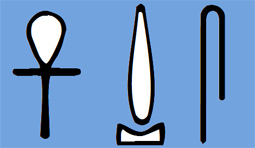
Life !
Prosperity ! Health !
by Wim van den Dungen
"Just as
the diverse variety of experience that one made up the living ancient past
can never be recovered, so no single history, no academic school, no
individual, can promise a definitive version of pharaonic Egypt. The best
that can be done, I think, is to recover various bits of the kaleidoscope
through which the ancient Egyptians viewed the world, and, through that
fragmented mix of endlessly repeating patterns, try to discover something
of what it was those people imagined they were doing." - Romer, J : A
History of Ancient Egypt, Penguin - New York, volume 1, 2013,
pp.xxii-xxiii.
MAAT.sofiatopia.org aims to bring into balance a multi-dimensional study
of the conceptual world, wisdom-culture and spirituality of Ancient Egypt.
This conceptual world is defined as ante-rational and approached with the
critical
methods of
genetic epistemology,
identifying mythical, pre-rational and proto-rational layers in the
Ancient Egyptian mentality. These pre-formal (ante-rational) modes of
cognitive functioning were discovered by Piaget. Ancient Egyptian culture
puts into evidence the excellence achieved by the "mental closure" offered
by mature proto-rationality, operating many sets of concrete
concepts adequately.
Important here are
verbal & written
magic, the
sapiental discourses
and the
Memphis theology. While
individual instances of rationality were at hand (as in
Ptahhotep,
Akhenaten or
Amen-em-apt), the overall cultural mentality
in Ancient Egypt remained ante-rational. Indeed, throughout the Old,
Middle & New Kingdoms, only about 1% of the population was literate.
These
Studies in Ancient Egypt serve the
Report on Studies in Philosophy, in particular the influence of
Ancient
Egyptian thought on Greek philosophy and its impact on Mediterranean
spirituality, in particular
Hermetism &
Alchemy.
In the context of my
mysticological
investigations, the study of the
Pyramid Texts,
brings the shamanistic component to the surface, providing evidence for
the this-life meaning of many
funerary rituals. This helps us to
understand the difference between Greek & Ancient Egyptian
mysteries. It also provides material
allowing us to make a distinction between
Alexandrian Hermetism and
European Hermeticism.
The present studies maintain safe distance from the "Kemetic
revivals" of the Ancient
Egyptian religion developing in Europe and the United States from the 1970s.
These approaches involve a preselected, piecemeal historical
"reconstruction" of Ancient Egypt, filling in the many obvious "gaps" with material
post-dating the tradition, like
Hermetism,
Hermeticism, or worse,
Abrahamisms like
Qabalah,
Christianity or
Sufism,
each adding bits from their own monotheist sacred texts (containing
fragments of Ancient Egyptian wisdom !). Intertextuality is of all ages.
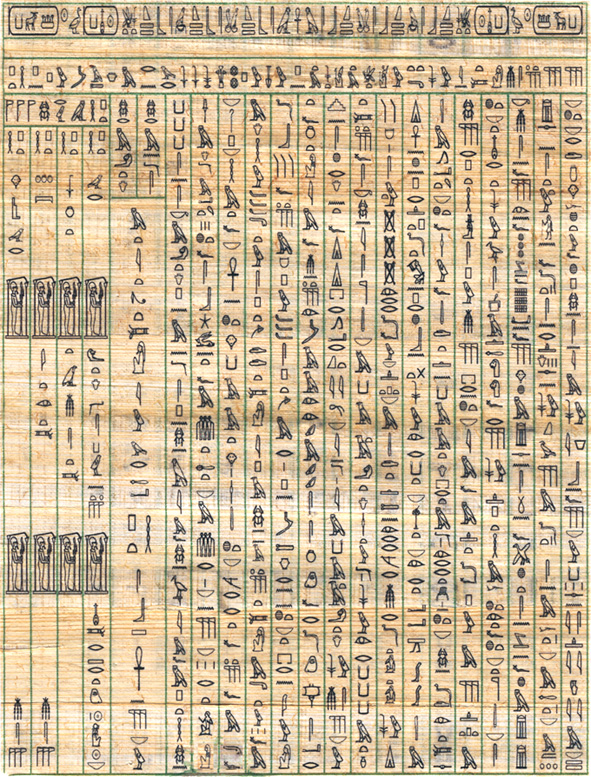
Memphis Theology
"The above conception of the world forms quite a
sufficient basis for suggesting that the later notions of nous and
logos, hitherto supposed to have been introduced into Egypt from abroad at a
much later date, were present at this early period. Thus the Greek
tradition of the origin of their philosophy in Egypt undoubtedly contains
more of the truth than has in recent years been conceded. (...) The habit,
later so prevalent among the Greeks, of interpreting philosophically the
functions and relations of the Egyptian gods (...) has already begun in
Egypt before the earliest Greek philosophers were born ; and it is not
impossible that the Greek pra ctice
of the interpretations of their own gods received its first impulse from
Egypt." -
Breasted, 1901, p.54.µ.

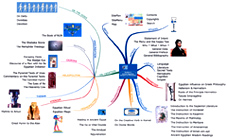
move to the
General
SiteMap of this subdomain or
follow this sign to be
guided through this website :







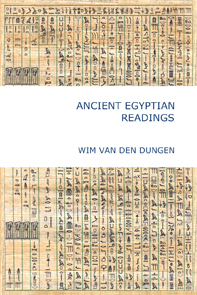
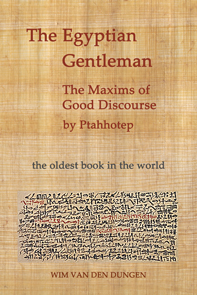
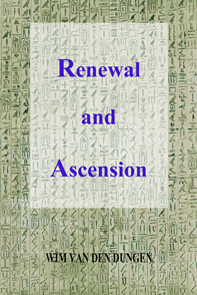
initated : 06 VI 2003 - updated : 17 II 2017
©
Wim van den Dungen

|







